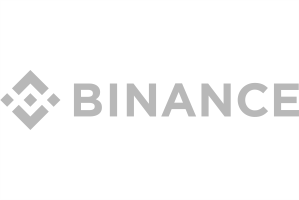Registering with the Bank of Spain as a VASP is a key requirement to legally conduct business with virtual assets and obtain a Spain crypto license. Reflecting the government’s focus on preventing cryptocurrency abuse, the process requires compliance with criteria such as establishing a legal entity, ensuring physical presence, developing a business plan, and complying with anti-money laundering guidelines. In this way, crypto license Spain holders will be able to provide cryptocurrency-related services, as well as data storage services, which are different from banking, electronic money or investment fund transactions.
Spain’s Cryptocurrency Regulatory Framework
In Spain, the regulatory framework for cryptocurrencies is developing, yet a specific Spain cryptocurrency license or regulation is not fully established. The key points of note are:
Legal Status of Cryptocurrencies
Cryptocurrencies are not considered legal tender in Spain, with the euro being the sole recognized currency under Law 46/1998.
Advertising Regulations
A Circular effective from February 17, 2022, sets standards for cryptocurrency advertising, including:
- Large advertising campaigns must notify the CNMV 10 working days in advance, detailing campaign dates, territory, and description.
- Failure to comply may result in sanctions, with penalties based on advertising revenue and the extent of the violation.
Compliance with Anti-Money Laundering (AML) Directives
Royal Decree 7/2021, enacted on April 27, 2021, mandates:
- Mandatory registration of cryptocurrency service providers with the Bank of Spain.
- Alignment with the EU’s Anti-Money Laundering Directive 5 (AMLD5) to bolster Spain’s stance against financial crime.
CNMV Oversight
Since February 8, 2018, the CNMV has sought to regulate cryptocurrency advertising by defining crypto assets as digital representations of value or rights using decentralized registry technologies.
Blockchain Technology in Legal Validation
Blockchain is recognized for its potential to transform legal document validation, traditionally the domain of notaries, by:
- Offering an alternative mechanism for legal asset identification.
- Examples include BBVA’s blockchain implementation for syndicated financing, signaling wider legal applications for blockchain technology in Spain.
Activities for Spain Crypto License Holders
Holders of a crypto exchange license Spain, specifically registered Virtual Asset Service Providers (VASPs), are endowed with several key capabilities:
- Digital Asset Storage Services
- Offer secure storage solutions for virtual assets on behalf of clients.
- Virtual Currency Exchange
- Exchange crypto assets for fiat currency and vice versa.
- Facilitate the exchange of one type of cryptocurrency for another.
- Technological Integration
- Develop and integrate proprietary technology to streamline and secure transactions.
- Investment Opportunities
Provide access to crypto asset-related investment projects and funds.
Cryptocurrency Exchange License in Spain and Portugal
If you want to obtain crypto exchange license in Spain, you need to take care of registration with the Central Bank of Spain and provide a physical office in the country. In addition, all participants in the process must have a clean reputation, create a detailed business plan, and hire experienced staff. The company must have an anti-money laundering officer and comply with anti-money laundering regulations.
In the case of the Portuguese cryptocurrency license, notarized documents of the founders, an apostilled power of attorney, proof of citizenship of all founders, and a lease for a local office are required. The requirements also include one director with Portuguese citizenship, an employee of the anti-money laundering department, a policy for the supervision of cryptocurrency transactions, and a full package of documents.
Spain Crypto License Requirements
To secure a Spain cryptocurrency exchange license, applicants must adhere to a structured set of criteria:
Registration and Legal Setup
- Enlist with the Spanish Central Bank Registry (SCB).
- Form a Sociedad Limitada (SL), the local equivalent of an LLC.
Operational Requirements
- Acquire or lease an office space within Spain.
- Maintain a flawless reputation among all beneficiaries.
- Craft a detailed business plan outlining strategy, platform use, client acquisition, and protection measures.
- Open a corporate bank account and receive financial clearance from the Central Bank of Spain.
- Hire qualified personnel, including an AML Officer.
- Adhere to Anti-Money Laundering regulations rigorously.
Steps for Obtaining a Spain Crypto License
Securing a Spain crypto exchange license involves a streamlined process tailored for entrepreneurs entering the cryptocurrency sector.
Stage 1. Company Formation Choice
Decide on the most suitable company form for your cryptocurrency venture, typically opting for a Sociedad Limitada (SL) due to its compatibility with crypto activities.
Stage 2. Company Name Certification
Secure a unique name for your company, essential for its formal establishment and identification.
Stage 3. Documentation Preparation
Compile all necessary documents, including the articles of incorporation, and have them notarized for legal validation.
Key Documents Include:
- Corporate Charter.
- Foreign exchange service provider registration form.
- Legal entity and manager evaluation questionnaires, duly signed.
- Anti-money laundering (AML) and counter-terrorism financing (CTF) policies.
- Risk assessment documentation.
Stage 4. Commercial Register Enrollment
Register your company with the Registro Mercantil (Commercial Register) to formalize your business presence.
Stage 5. Taxpayer Identification Number (NIF) Registration
Obtain a unique NIF for your business, a prerequisite for tax purposes and dealings with Spanish tax authorities.
Spain Crypto License Taxation
In Spain, engaging in cryptocurrency transactions entails tax obligations based on the profits earned, with specific rates applicable.
Profits up to 6,000 EUR: Taxed at 19%.
Profits from 6,000 EUR to 50,000 EUR: Taxed at 21%.
Profits above 50,000 EUR: Face a tax rate of 23%.
For non-residents, dividend income and similar financial gains are uniformly taxed at 19%. Both individuals and legal entities in the sector are subject to regulatory oversight, so cryptocurrency mining activities require registration with the Spanish tax authorities.
In October 2019, Spain mandated the disclosure of all cryptocurrency assets and transactions following adopting the Law on Measures to Prevent Tax Fraud. It is very important to comply with the requirements of the law in the context of the evolution of the digital asset market, as failure to do so may result in a significant fine of EUR 10,000.
FAQ
How to obtain a crypto license in Spain for a VASP?
If you want to obtain a cryptocurrency license in Spain, you first need to register with the SCB by creating an SL legal entity and receiving approval from the Bank of Spain.
Is the cryptocurrency market regulated in Spain?
The government has established guidelines covering classifying cryptocurrency assets, marketing practices, tax obligations, and compliance with anti-money laundering (AML) guidelines. Although, as of 2023, Spain does not have clear legislation on cryptocurrencies.
Is cryptocurrency income taxed in Spain?
There are rates from 19% to 23% at which cryptocurrency income is taxed. In addition, there is a flat tax rate of 19% on dividend income that applies to non-resident investors.
What steps are required to launch a crypto business in Spain?
To successfully start working in this field, choose a legal structure, obtain a certificate for the company name, draw up and notarize the necessary documents, register with the Commercial Registry, and receive a NIF. The Bank of Spain controls the evaluation and license issuance process.








